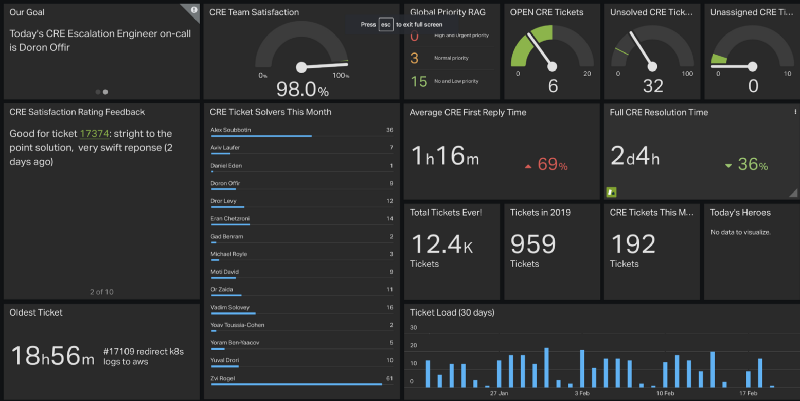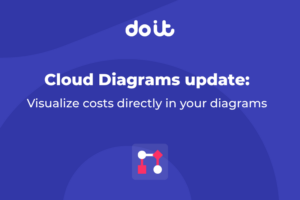
2018 is over, and since we are well into 2019 it’s a good time to summarize the state of the multi-cloud business as we have experienced it at DoiT International during 2018, and how we see the future of multi-cloud during 2019 and beyond.
I have to admit I am a big fan of interesting and useful infographics. If done well, it’s a great, educating, and easy way of grasping new information quickly.
2018 was our 6th year in the multi-cloud business as a company. What started out as a Google G Suite reseller business has evolved into a global, multi-cloud business with customers on Amazon AWS, Google Cloud, Microsoft Azure, and probably even more platforms in the future.
With almost 4000 customers in North America, Europe, and Israel we believe we have a good sense of how companies are using a public cloud, how many public clouds do they use, as well as which workloads they are putting on each of the public clouds.
So what do we learn from our 2018 data?

Multi-Cloud: Is it real?
About 42% of our customers (roughly 1,680 companies) have used more than one public cloud provider during 2018. This compares to only 29% during 2017, which is about a 30 percent growth year-over-year, and we see this trend accelerating during 2019.
Customer Profiling
Digital Marketing and Financial Services verticals are ruled by Amazon AWS, while e-Commerce companies are slowly shifting to other providers such as Google Cloud and Microsoft Azure. Gaming seems like another vertical where Google Cloud is gaining momentum, along with Media and Entertainment.
Workloads
During 2018, EC2, S3, and RDS were the most dominant services our customers have used on AWS platform. Data Analytics and ETL tools along with managed container services are also gaining significant momentum.
For Google, Analytics and ETL (BigQuery being the biggest part of it) is the largest single workload, as well as Managed Kubernetes — these are the key reason companies have used Google Cloud during 2018.
Technical Support
Legendary customer service and support is one of our core differentiators as a company. We provide unlimited free engineering support to all of our customers, maintaining a 98%+ customer satisfaction rating.

During 2018, on an average month we had about 500 technical tickets, and we thought it would be interesting to analyze what the most popular questions our customers are asking with respect to each cloud platform.
AWS VPC and VPN related questions are the biggest part of the technical assistance required by our Amazon AWS customers. That’s not a big surprise given how developed and featureful the AWS VPC and VPN are.
Amazon Redshift is another big area of interest, specifically the query optimization and schema design-related questions. Elastic Beanstalk is surprisingly well adopted (given the plethora of container management services offered by AWS) and draws also a significant number of technical requests.
Not a big surprise, but since almost all customers on Google Cloud are using BigQuery, query optimization is a big domain of technical expertise we provide. Multi-Region Kubernetes Ingress implementations have become popular among many customers during 2018, and it reflects in the number of related support requests.
Customer Survey
During January we surveyed 250 customers on how they chose cloud providers.
It seems like existing knowledge is playing a big part in decision-making, along with the maturity of VPC and EC2 products with Amazon AWS.
Large analytics and machine learning customers are tending to choose Google, though from our experience AWS SageMaker is an excellent product that we love to use at DoiT International.
Managed Kubernetes is another reason why companies are choosing Google Cloud. We believe that this is because GKE is an exceptionally good product both in features and stability.
We are yet to see how well AWS EKS will be adopted, however AWS is known for rapidly releasing new features and improving the products in increments, so I would not be too surprised if this will change during 2019.
Summary
Our 2018 results demonstrate a multi-cloud strategy that’s working, and providing a solid foundation for our customer’s growth. Our opportunity now is to accelerate our customer’s momentum, and help them to build even more global, solid, and larger businesses.
On our end we are going to intensify our investments in helping our customers to execute their multi-cloud strategies by adding more engineering capacity to our IoT, Machine Intelligence, Data Analytics, and Core Infrastructure pods.
Want more stories? Check our blog, or follow Vadim on Twitter.


